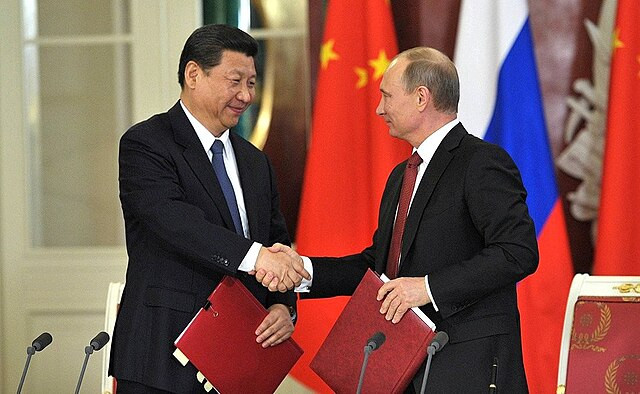Chinese President Xi Jinping welcomed Russian President Vladimir Putin to Beijing on Tuesday, calling him an "old friend," as the two leaders reaffirmed what both described as a historic partnership aimed at countering U.S. dominance. Their meeting came ahead of a massive military parade marking the 80th anniversary of the end of World War II, where North Korean leader Kim Jong Un also arrived to join a display of solidarity among states isolated by the West.
Putin addressed Xi as a "dear friend" and declared that Moscow's relationship with Beijing had "reached their highest level in history." A Kremlin readout quoted him as saying, "We were together then, we remain together now," as the two leaders recalled cooperation during World War II. Xi, who has met Putin more than 40 times over the past decade, emphasized "sovereign equality, the rule of law in international relations, and multilateralism," according to a Chinese summary of the talks.
The leaders met at the Great Hall of the People before continuing with tea at Zhongnanhai, the walled compound at the center of Chinese political power, underscoring Beijing's effort to highlight the relationship. The Chinese Foreign Ministry announced it would grant Russian passport holders 30-day visa-free entry starting Sept. 15. "We welcome our Russian friends to come to China more often," ministry spokesperson Guo Jiakun said.
Energy was central to the talks. Gazprom CEO Alexei Miller said a memorandum had been signed to build the Power of Siberia 2 pipeline, which would significantly increase Russian gas supplies to China. Russia also agreed to boost deliveries through existing pipelines, a lifeline for Moscow as it redirects energy exports eastward under Western sanctions.
Kim Jong Un's arrival in Beijing marked his first multilateral event since taking power in 2011. State media showed him stepping off his armored train in a black suit and red tie. South Korea's National Intelligence Service told lawmakers that more than 2,000 North Korean troops have been killed fighting alongside Russia in Ukraine, more than double earlier estimates. The agency said Kim's presence alongside Xi and Putin would "reproduce the triangular solidarity structure of the Cold War era."
Xi and Putin's embrace comes as U.S. President Donald Trump has reshaped global alignments with tariffs, cuts to foreign aid, and his approach to Ukraine. Trump's administration recently imposed tariffs as high as 50% on Indian goods, straining ties with New Delhi. Indian Prime Minister Narendra Modi met separately with Xi and Putin at the Shanghai Cooperation Organization summit in Tianjin this week, highlighting how Trump's policies have driven Washington's partners closer to Beijing and Moscow.
Analysts said the Beijing summit illustrated how China and Russia, while facing different challenges from Washington, are united by common grievances. "China and Russia face the same problem and must work together to jointly cope with the pressure from the U.S.," said Li Xin, director of the Institute of European and Asian Studies at Shanghai University of Political Science and Law.
The SCO summit and Wednesday's parade are designed to amplify Xi's campaign to reshape the U.S.-led global order. "China and Russia do not yet have the power to change the world order but they are constantly pushing for reforms that benefit them," Li said. Xi used his platform to call for "a more just and equitable global governance system," part of his long-running effort to project China as an alternative leader for states dissatisfied with the U.S.-dominated status quo.






